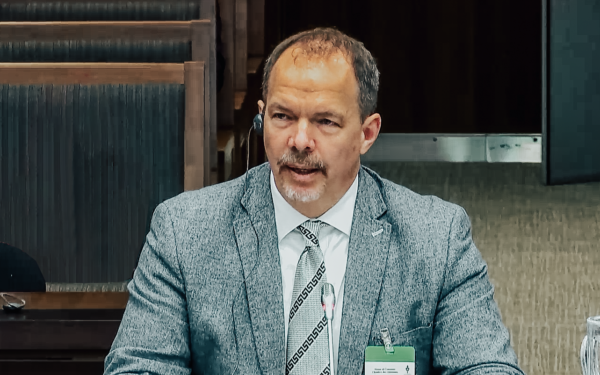The internet—it’s kind of a big deal.
The internet—it’s kind of a big deal.
In case you haven’t noticed, the internet is everywhere these days. It helps deliver a burrito to your house at any time of day; it provides you with an endless supply of cat memes; and it allows you to procrastinate by chatting with friends all around the world.
Thing is, lately, the internet has been having a tough time. From websites that misuse your data; to news that isn’t really news at all; to bots that somehow always seem to know which hashtags to use—the internet is going through a rough patch.
It doesn’t have to be this way.
At CIRA, we’re big fans of the internet. In fact, we think it is one of the greatest forces for good in human history. The internet has enabled an explosion of knowledge, communication, creativity and commerce – the likes of which the world has never seen. Like any technology, the internet can also be used for ill, but we like to think that the positives far outweigh the negatives.
So what can we do?
You may have noticed by the proliferation of colourful signs in your neighbourhood that there is an election underway right now. While organizations like CIRA, private corporations, and individual citizens all have a role to fill in making the internet a better place, our governments have a unique ability enact the rules, processes, and incentives that set the tone for everyone else.
In that light, CIRA has put forward our Vision of the Future of Canada’s Internet. It is a set of three core principles that we feel should guide the next federal government in how they approach internet policy.
First, the internet must be open. One of the founding principles of the internet is openness, and lately it seems as though sections of the internet are being closed off, often by platforms and organizations that benefitted heavily from it being open in the first place.
In order to be truly open, the internet must be democratic, embracing free expression and the exchange of ideas; innovative, empowering the creativity of Canadians; and competitive, allowing businesses of all size to access a level playing field.
Next, we have trust. Like any vast human system—legal, monetary, political—trust is central to how the internet functions. Without trust, things break down; people lose faith in the internet; and only those with big bank accounts and massive legal teams can afford to participate.
To rebuild trust, we believe that privacy must be the default setting of the internet; security must be built into everything we do; and users must be given the tools and knowledge to use the web safely.
Finally, we believe the internet must be people-centered. This means that individuals must reclaim their position as the central actors online. Lately the internet has been part of a tug-of-war between large corporations and entrenched interests looking to control it. However, the foundation of the internet was all about the individual user.
To do this, Canada’s internet must be transparent, ensuring users know what they’re signing up for; accessible, providing all Canadians regardless of location or economic circumstance with a fast, reliable connection; and most importantly, everyone must be given the education and training to use the internet effectively.
So what can you do? Well, if a candidate knocks on your door; if you have the opportunity to attend a town hall meeting; or if you are connected with a political party online; ask them about their vision for Canada’s internet. Let them know that you believe that the internet most be open, trusted and people-centered, and challenge them to show you how their party will make that happen.
The internet is central to Canada’s political, economic and societal future. We bank, learn, shop, communicate, and entertain ourselves via the internet. We know there isn’t one way to accomplish our vision—every party will have a different viewpoint—but the principles are what matters. No matter who you vote for this November, make sure you consider how their policies will impact the internet, and ultimately Canadian society.
To learn more about CIRA’s Vision of the Future of Canada’s Internet visit: www.cira.ca/internet-vision
Spencer Callaghan is the senior manager, brand & communications at CIRA. He is a writer, former journalist, and has experience in technology, non-profit, and agency environments throughout his career. His areas of expertise include content marketing, social media, branding, and public relations.




